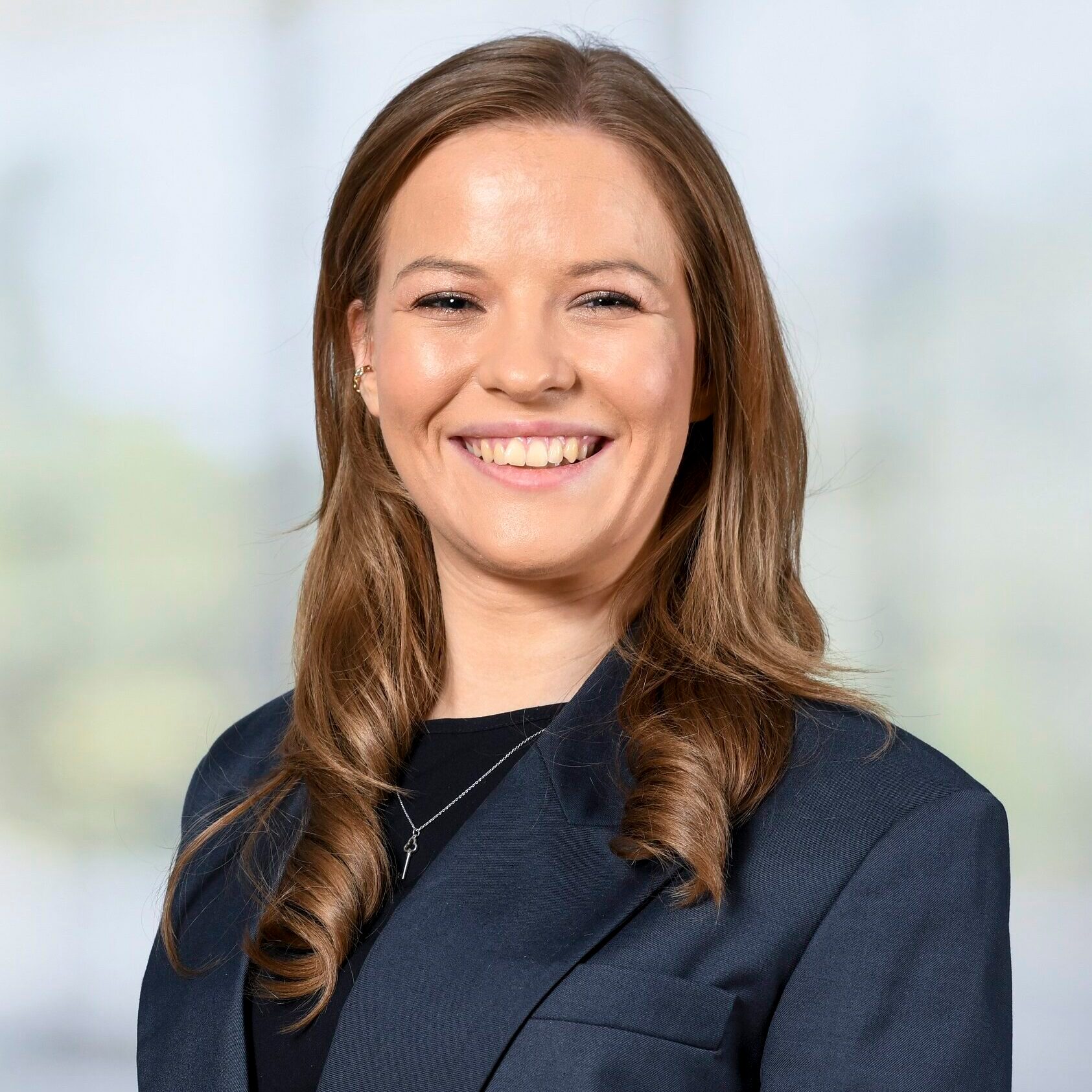In part two of our International Women's Day special, React News speaks to rising stars in the industry

8 Mar 2024 07:45 GMT | by Marie-Noelle Sbresny, Julie Cruz
Following our chat with senior female leaders in the industry, we’re putting younger voices on the stage for this year’s special feature on International Women’s Day – which runs under the motto “Inspire Inclusion”.
Young women should be seen as a driver of transformation in the industry. They are agile, often closer to current trends and technology and, by necessity, take a longer-term perspective.
Here, in part two of our special IWD24 feature, React News asks what inspired these rising stars to get into the real estate industry, their proudest moments and the most pressing themes ahead – and also what advice they would give their senior industry colleagues.
They tell us they want a seat at the table to shape the future of real estate, they want leaders that keep questioning themselves and the status quo and who are open to reverse mentoring.
How did you get into the real estate industry?
Annika Schmelzer, asset manager, Verdion
My first contact with the industry was getting to know a residential agent in my hometown, Wiesbaden near Frankfurt. I developed an interest in their work, which led to a traineeship. Working with developers, clients, architects, notaries and others convinced me to pursue a career in real estate.

“New generations have different priorities and attitudes, which impact wider market trends and investment decisions as well as consumer behaviour”
ANNIKA SCHMELZER, VERDION
In my previous job, I had the chance to work on a logistics project. Since then, I have loved the sector’s hands-on approach, from agents, as well as investors, developers and occupiers. At the same time, exploring technical innovation in construction, logistics handling, production and manufacturing, for example, also played an important role.
Juan Du, investment director, Patron Capital
Having grown up in China just as real estate started to take off, I felt inspired to want to be a part of it. I wanted to understand how it worked as an asset class and was excited by the different possibilities of a career in what was then a very quickly growing sector. I studied land economy at the University of Cambridge, which strengthened my interest, and has helped throughout my professional life by allowing me to see the bigger picture when I approach an asset or deal.
I think the combination of my education in the west and upbringing in China has positioned me well, because the former gave me the opportunity to learn from previous cycles and historical performance to take lessons from the past, while the latter emphasised the importance of change and adaptation. Keeping these two elements in harmony is crucial for success in the real estate industry.
Georgia Videan, associate director – European real estate debt, Barings Real Estate
I started my career as a lawyer in the real estate banking team at a top-tier firm and made the transition into real estate investment five years later, initially working for a real estate debt fund in an Australian investment bank before moving to London and joining the Barings real estate team. I have always loved real estate, and working in an investment team gives me the opportunity to closely analyse and assess assets on a daily basis.
Sarah Thorley, associate director, strategic advisory EMEA, Savills
I am in the first generation in my family to go to university and the first to join the corporate world. I was working in a local estate agency as a Saturday assistant and started looking into careers in property. I stumbled across the Pathways to Property Summer School run by the Reading Real Estate Foundation at the University of Reading. I attended the four-day summer school as a 17-year-old and met a host of inspirational people who made me believe that real estate might be for someone like me. I then studied for a BSc Real Estate at the University of Reading, had an absolute blast, attained a first-class degree and had some very memorable time spent studying abroad in Malaysia.
Eloise Turton, managing director of investor relations, Martley Capital Group
Predominantly through work experience and jobs in the summer holidays. I was interested in a vocational university degree that would, hopefully, result in securing a related job straight after university. I was attracted to the breadth and variety that real estate offers, as well as the opportunity to work in a very social industry, which also allows you to get out and about.
I didn’t originally have any family in the industry, but my younger sister is now following in my footsteps and doing her undergrad in real estate – which is very exciting!
What is your proudest moment?
Annika Schmelzer: Leasing has always been my favourite aspect of the role – particularly the moment of handing over a completed asset to a satisfied client, the successful start of a longer working relationship. Last year, we completed and leased a speculative logistics development in Nettetal, close to the Dutch border, which is part of the Verdion European Logistics Fund 1 (VELF 1). It was taken by a UK-headquartered tenant prior to completion. It was great to be part of the team helping to support the business’s European expansion with their first facility in Germany. Getting to understand their drivers and how they operate internationally, along with being able to learn about their approach to sustainability, was an added advantage.
Juan Du: The proudest moment of my career was the launch of the Women in Safe Homes fund. Believed to be the world’s first gender-lens social impact property fund, we co-founded and jointly manage the vehicle with Resonance.
“The proudest moment of my career was the launch of the Women in Safe Homes fund. Not only did this represent a career breakthrough for me, but what it means in terms of social impact and creating changes for vulnerable women and children is something I am very proud of”
JUAN DU, PATRON CAPITAL

The launch came after nearly two years of work to create the concept, design the model with some incredible partners, such as Big Society Capital and the MacArthur Foundation, work out how it can be implemented and realise it as a product. Not only did this represent a career breakthrough for me, but what it means in terms of social impact and creating changes for vulnerable women and children is something I am very proud of.
Georgia Videan: Transitioning from law to a real estate investment role was an incredibly challenging but rewarding move. From a skills and progression perspective, I was starting from scratch, while also having to re-engineer my mind set from risk mitigation to calculated risk taking. I went from being confident in my role and day-to day tasks, to finding myself out of my comfort zone and learning how to navigate new and challenging situations. After a few years of hard work, I secured an associate director role at Barings, which was a very proud moment for me and reaffirmed that I had made the right decision to transition into investments.
Sarah Thorley: I wouldn’t say I have a single proudest moment as I see life as a collection of memories that together make me proud. Establishing the strategic advisory team at Savills is a standout achievement for me. Being on the board for Pathways to Property makes me extremely proud as it feels like I have come full circle. Through this, and through my new role as co-chair of the Savills social mobility initiative, I take great pride in being able to amplify the perhaps underrepresented voices of those around me. Recently appointed to the board of Crew UK, it makes me feel proud of the amazing work we are doing in providing a platform for women in our industry to accelerate their careers.
Eloise Turton: In the context of my career, I would have to say Martley Capital. We formally launched the business at the end of 2023 and also closed our first deal as part of our gap financing credit strategy. While it has been pretty non-stop, starting a new business has been an incredible experience. We have built a fantastic platform and are now well positioned to take advantage of the current market conditions with our opportunistic strategies. I would have never expected to have followed the path that I have, but I am very proud of my achievements to date.
What will be the biggest topics that will define and move the real estate industry forward over the next five years?
Annika Schmelzer: For me, the areas to watch are clear. First of all, sustainability, especially when paired with technological progress. New initiatives will move the industry forward significantly. Then, global politics as well as other political influences on the economy, legal regulations and building requirements, which will all continue to have a major impact. The smartest businesses will stay ahead of these changes. Lastly, demographic changes, taking into account an ageing population as well as new working patterns and consumer concepts.
Juan Du: The first is undoubtedly ESG. Over the past three to five years we have seen so much change that has impacted the main fund series of Patron Capital as well as the Women in Safe Homes fund, the real estate industry and the wider business world. And more change is coming as different companies and governments develop and refine their criteria, expectations and approach to measurement.
Next is AI. AI is already everywhere, but in the future, I think we will see changes in how people use it and implement it in the industry. Real estate has historically been quite a traditional asset class that has been slow to change, but I think there is much we can learn from and improve as a result of AI, both for our daily work, but also in how we analyse market information.
Finally, demographic changes and evolving trends in consumer behaviour will continue to impact the industry. This started with changing living habits after the pandemic – particularly around online shopping, flexible working and de-urbanisation – but I think we are already seeing further change as some of these trends continue to grow, while some have already started to recede.
Georgia Videan: First is the impact of artificial intelligence on investment decisions and asset management. This will be a critical force in the industry, both in its ability to enhance our ability to do our current roles, while also streamlining processes for efficiency, especially as it comes to accessing real time data and forecasting investment returns.

“The impact of artificial intelligence on investment decisions and asset management will be a critical force in the industry”
GEORGIA VIDEAN, BARINGS REAL ESTATE
Next, ESG will continue to be a huge propellant in underpinning development and sustainability in the market – it can present challenges but, given the rising link between real estate assets and sustainability performance, it also drives huge opportunity and growth prospects.
Finally, the ramifications of a changing office landscape will continue to be significant, particularly when it comes to how the market adapts and translates this into an opportunity to convert redundant space. We should all be paying close attention to how the retail industry grappled and ultimately recovered from the rapid onset of e-commerce as there are key learnings from this.
Sarah Thorley: The global semiconductor chip race is very important, given their pivotal role in powering diverse technologies, ranging from mobile phones to autonomous vehicles. The sector’s expansion is poised to impact not only manufacturing space but also trigger increased demand throughout the entire supply chain, including scientific research and development.
Demographic shifts will continue to correlate with changes in real estate markets, including aging populations which will stimulate the need for healthcare facilities, purpose-built accommodation, and research and development space, and will release housing stock back into the market.
“Being on the board for Pathways to Property and in my new role as co-chair of the Savills social mobility initiative, I take great pride in being able to amplify the underrepresented voices of those around me”
SARAH THORLEY, SAVILLS

The rise of the creator culture, as consumers’ decision making is increasingly impacted by influencer making, will continue to reshape retail and e-commerce.
Clearer evidence will emerge on the relationship between property value and sustainability factors which will underpin decision making. This is driven in part by legislation and heightened awareness of climate risks like heat stress, droughts, and wildfires which are becoming more apparent.
Eloise Turton: In the short term, I would have to say the current interest rate environment in the UK, which has led to significant price dislocation in commercial real estate. The impact of rates rising to a 15-year high has been well reflected by the drop in transaction volumes and valuations. We believe that this a short-term phenomenon and our expectation is for a swifter resumption of more normal conditions in the debt markets than most commentators forecast. We therefore see this as a window of opportunity of limited duration, creating highly attractive entry points over the next six to twelve months, and our current strategies aim to take advantage of this.
Looking further ahead, approaching the following areas in the correct way will be crucial for moving the industry forward:
- Diversity: Given that real estate shapes how we live, work and play, the industry must be diverse to provide and maintain a relevant built environment.
- ESG: Continuing to be of high importance, with requirements for both assets and firms likely to increase over time.
- AI and technology: Identifying how we can use tech in the best way to create efficiencies across the sector.
What advice would you give to your senior colleagues and peers in the industry?
Annika Schmelzer: The world is changing quickly. Stay informed about innovations in technology, population changes, customer preferences and needs, as well as keeping up with the latest ethical standards in work and business relationships – not just through the media but through engaging with colleagues and contacts outside your own demographic. New generations have different priorities and attitudes, which impact wider market trends and investment decisions as well as consumer behaviour. Including more voices, outlooks and ideas will make our sector even stronger.
Juan Du: Achieving gender parity might be complex, but my advice is simple: provide more opportunities for women in real estate. Real estate lags other sectors in the number of senior female leaders and we need to address this through providing more opportunities, better training and making changes that help women at the start of their career plot a trajectory that will see them rise to the top.
Georgia Videan: Themost effective and inspiring senior colleagues I have worked with have always valued and actively sought the opinion of every team member, from graduate to manging director (sometimes even insisting on it). This approach results in greater diversity of thought which helps us to make better investment decisions as everyone is given a seat at the table.
Combined with the ability to question yourself, your decisions and the status quo of the industry, this drives positive change and makes everyone feel valued in a team.
Finally, I would advise anyone to keep seeking feedback and pushing yourself out of your comfort zone – this is something that comes incidentally in your career as a junior but is something you need to actively pursue as you progress in seniority.
Sarah Thorley: Have conscious conversations, be mindful in your communication and remember that thoughtful words can prevent unintentional isolation.
Embrace the concept of “failing forward”, creating an environment where failures are viewed as valuable learning opportunities. The best mentors have encouraged me to be less of a perfectionist and embrace the courage to try.
Avoid quick judgments on credibility; polish does not define potential. You can teach skills, but it’s hard to teach enthusiasm, passion and resilience. A lot of hiring and promotion processes are inadvertently measuring poise over real skill, so influence that and ensure you have robust processes in place.
Lastly, one of my favourite quotes by activist Betty Friedan, “you can have it all, just not all at the same time”, which reminds us that balance is needed. Taking care of yourself and those around you is paramount for being an effective leader.

“I think there is a great benefit to working together across all ages and levels of experience; teaching each other and undertaking ‘reverse mentoring’”
ELOISE TURTON, MARTLEY CAPITAL GROUP
Eloise Turton: Where possible, allow more junior member of the team to get involved with projects, attend meetings, contribute and “get stuck in”. I think there is a great benefit to working together across all ages and levels of experience; teaching each other and undertaking “reverse mentoring”. We have definitely seen the value of this at Martley Capital, particularly as a new company where it is often all hands on deck. Working alongside Richard Croft, our chief executive, has been an invaluable experience and I have learnt an unbelievable amount in the last few years.
To see the original React News story please click here.




